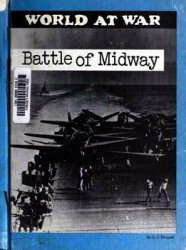The United States Army Corps of Engineers had its origins in the Revolutionary War and found a permanent home in 1802 when President Thomas Jefferson signed the bill
United States Christian Commission (1861-1866) Reflecting both the deeply religious nature of 19th-century American life and a strong commitment to voluntarism, the United States Christian Commission (USCC) was formed to provide a variety of social services to the men who served the Union as soldiers. Like many other philanthropic organizations, the USCC mobilized civilian (and especially female) energies throughout the CiviL War to ease the burdens of the troops in both material and spiritual ways.
When large numbers of volunteers began to leave for the war, many Northern Christian activists became convinced that soldiers’ lives should be made easier. In November 1861, at a conference in Philadelphia, Pennsylvania, George H. Stuart, a wealthy merchant and staunch Presbyterian, was named the first president of the newly created United States Christian Commission. He remained president for the life of the Commission.
The USCC’s original plan was to assist the chaplains of the armed services in their daily work. To do this, the USCC settled on eight unifying principles: compassion, voluntarism, benefits for the body and soul, personal distribution, personal ministrations, nationality (patriotism), cooperation, and respect for authority. Through adherence to these principles, the commission believed that it could assist in the war effort without interfering with military authorities.
An extensive administrative organization supported the USCC’s work. There was an executive committee, station agents and field representatives served in the field, and the local organization was broken into branch commissions and ladies commissions. The executive committee oversaw the USCC’s daily affairs. Initially, it was composed of only 12 members, but the number grew to 55 as the Union army grew and the extent of the need became apparent.
Station agents, often called ministers, oversaw the activities of the field representatives, volunteers who personally aided soldiers in the field. While field representatives worked directly with soldiers, station agents monitored USCC work for a particular army corps or a locale near the front line. Station agents also organized supplies, ensuring that each field representative had what he or she needed and directing aid first to those areas that needed it most.
The branch commissions and ladies commissions both served as fund-raising and public relations arms for the USCC. Although their ultimate goal was the same, they each used their own methods. Whereas the branch commissions primarily focused on raising cash for the war effort, the ladies commissions organized women to prepare food, clothing, and gifts for distribution to Union soldiers. According to the 1866 final report of the USCC, the ladies commissions consisted of 266 members in 17 states and had raised more than $200,000 during the course of the war. One of the most-notable members of the ladies commissions was Annie Wittenmyer. Concerned about the diet of soldiers in Missouri, she established the first kitchen in the Cumberland Hospital in Nashville, Tennessee. Witten-meyer’s diet was a vast improvement in both health and satisfaction, providing nutritious, tasty foods.
The backbone of the USCC, however, was its delegates, or field representatives. These men and women went to the field equipped with a memo book, instructions, food, bedding, utensils, and publications of various kinds. Each delegate worked for an average of 38 days and was responsible for all the supplies sent to that particular spot, in addition to giving assistance to the surgeons and chaplains where necessary. Even though the delegates’ primary responsibilities were to assist the chaplains in their pastoral and evangelical work, they often acted as lay ministers, librarians, nurses, social workers, and worship leaders. By the end of the war more than 5,000 people had served as delegates for the USCC.
President Abraham Lincoln’s administration recognized the positive effect of the USCC on behalf of Union troops. Lincoln offered support to the commission wherever possible during the war. In addition, Gen. Ulysses S. Grant welcomed the commission and gave its members free access to his men.
The assistance provided by the USCC was invaluable. By the end of the war, the commission had raised more than $6 million to benefit the army. Delegates distributed 1.5 million Bibles and 1 million hymnals. In addition, they preached more than 58,000 sermons, held 77,000 prayer meetings, and assisted the soldiers in writing more than 92,000 letters to their families and friends.
Further reading: Jeanie Attie, Patriotic Toil: Northern Women and the American Civil War (Ithaca, N. Y.: Cornell University Press, 1998); Lemuel Moss, Annals of the United States Christian Commission (Philadelphia: J. B. Lippincott, 1868).
—Megan Quinn and Fiona Galvin




 World History
World History









